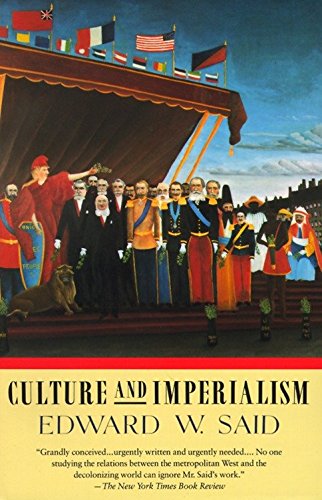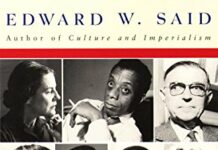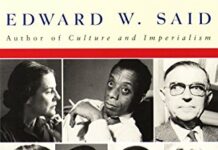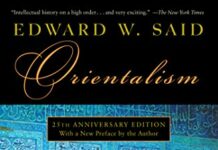
Ebook Info
- Published: 1994
- Number of pages: 380 pages
- Format: PDF
- File Size: 7.91 MB
- Authors: Edward W. Said
Description
A landmark work from the author of Orientalism that explores the long-overlooked connections between the Western imperial endeavor and the culture that both reflected and reinforced it.In the nineteenth and early twentieth centuries, as the Western powers built empires that stretched from Australia to the West Indies, Western artists created masterpieces ranging from Mansfield Park to Heart of Darkness and Aida. Yet most cultural critics continue to see these phenomena as separate. Edward Said looks at these works alongside those of such writers as W. B. Yeats, Chinua Achebe, and Salman Rushdie to show how subject peoples produced their own vigorous cultures of opposition and resistance. Vast in scope and stunning in its erudition, Culture and Imperialism reopens the dialogue between literature and the life of its time.
User’s Reviews
Editorial Reviews: Amazon.com Review Edward Said makes one of the strongest cases ever for the aphorism, “the pen is mightier than the sword.” This is a brilliant work of literary criticism that essentially becomes political science. Culture and Imperialism demonstrates that Western imperialism’s most effective tools for dominating other cultures have been literary in nature as much as political and economic. He traces the themes of 19th- and 20th-century Western fiction and contemporary mass media as weapons of conquest and also brilliantly analyzes the rise of oppositional indigenous voices in the literatures of the “colonies.” Said would argue that it’s no mere coincidence that it was a Victorian Englishman, Edward G. Bulwer-Lytton, who coined the phrase “the pen is mightier . . .” Very highly recommended for anyone who wants to understand how cultures are dominated by words, as well as how cultures can be liberated by resuscitating old voices or creating new voices for new times. From Publishers Weekly The author of Orientalism examines the interrelationship of Occidental literature and imperialism from the 17th century to the Gulf war. Copyright 1994 Reed Business Information, Inc. Review “Grandly conceived . . . urgently written and urgently needed. . . . No one studying the relations between the metropolitan West and the decolonizing world can ignore Mr. Said’s work.’ –The New York Times Book Review”Culture and Imperialism has an eloquent, urgent topicality rare in books by literary critics. . . . Said is a brilliant and unique amalgam of scholar, aesthete, and political activist. . . . His learning is global.” –Washington Post Book World”Rough-and-ready scholarship from today’s street fight in the humanities. . . . Said reads passionately and bravely. . . . He challenges everyone to read fiction in the most comprehensive manner possible.” –Philadelphia Inquirer”Readers accustomed to the precision and elegance of Edward Said’s analytical prowess will not be disappointed by Culture and Imperialism. Those discovering Said for the first time will be profoundly impressed.” –Toni Morrison”In Culture and Imperialism, Edward Said’s immense erudition and interpretive audacity are brought to bear on a variety of literatures, reanimating the terms of his title and discovering, in the process, how some of the most revered cultural productions call upon the same energies that go into the building of empires. His book will likely become a classic of contemporary criticism.” –Richard Poirier From the Publisher “In Culture and Imperialism, Edward Said’s immense erudition and interpretive audacity are brought to bear on a variety of literatures, reanimating the terms of his title and discovering, in the process, how some of the most revered cultural productions call upon the same energies that go into the building of empires. His new book will likely become a classic of contemporary criticism.” –Richard Poirier From the Back Cover A landmark work from the intellectually auspicious author of Orientalism that explores the long-overlooked connections between the Western imperial endeavor and the culture that both reflected and reinforced it. “Said is a brilliant . . . scholar, aesthete and political activist.”–Washington Post Book World. About the Author Edward W. Said was born in 1935 in Jerusalem, raised in Jerusalem and Cairo, and educated in the United States, where he attended Princeton (B.A. 1957) and Harvard (M.A. 1960; Ph.D. 1964). In 1963, he began teaching at Columbia University, where he was University Professor of English and Comparative Literature. He died in 2003 in New York City.He is the author of twenty-two books which have been translated into 35 languages, including Orientalism (1978); The Question of Palestine (1979); Covering Islam (1980); The World, the Text, and the Critic (1983); Culture and Imperialism (1993); Peace and Its Discontents: Essays on Palestine and the Middle East Peace Process (1996); and Out of Place: A Memoir (1999). Besides his academic work, he wrote a twice-monthly column for Al-Hayat and Al-Ahram; was a regular contributor to newspapers in Europe, Asia, and the Middle East; and was the music critic for The Nation. Read more
Reviews from Amazon users which were colected at the time this book was published on the website:
⭐The Age of Empire, a term coined by historian Eric Hobsbawm in his classic anthology narrating the rise of European Bourgeois society and industrial capitalism, seems long behind us. The very notion today seems like a crumbling relic, imperialism being a code word for a long dead political project, a yellowing photograph of Rhodes and Stanley sitting strident as Atlas over Africa, comes to mind whenever the term is brought up. But Said in his magnus opus asks the question: “what if imperialism was not simply a political project born of European realpolitik, but a whole encompassing form of thought and more importantly cultural production, one which very much still lingers in our collective unconscious and very ontology of the quotidian?” That’s the main focus of his now classical text in comparative literature, and Said does an incredible job of filling out how the concept, as vague as it may sound, of imperialism effaced every monument of European culture and in a way modern American culture throughout the long 19th century and up to the present day. An eye opening read for anyone interested not only in literature but historiography and post colonialism.
⭐I almost gave up on the book. But persisted in the hope of connecting the abstract of literature and philosophy to the reality of imperialism and colonialism.
⭐This book will hold its own at any time. Provocative and reflective, this is an important view of how perspectives are developed and how we need to think about our role.
⭐The book is highly informative and assertive. In the level of language, Said use of language and grammar fascinates me; what make it interesting is the sort of refrain that follow, in other words, once you know the meaning of a phrase in this book you find yourself familiar with the rest of the book. He always define the phrases he uses because they will re-appear many times in the book. In the ideology level, the book set around a clear thread that keeps you engaged the whole time; a lot of examples support assumption that he made.
⭐This book is a correct analysis of the evolution of the islam thinking. Said didn’t be a fundamentalist, because he substains also elements of the English culture and he proposes this literature in a traditional context. This book is more a collection of cultural events, in according to the personal coherence of the author, than the series of wars.That is, here we have many aspects of the philosophic back-ground, and the imperialism is seen as trasmission of ideas.
⭐I bought it as used. Good one
⭐Thanks!
⭐Lectura obligatoria para los estudiosos de la cultura.
⭐
⭐Said’s second best analysis to imperialism, his ‘Orientalism’ book had covered this topic in different perspective, whoever culture and imperialism contents is all about how in 19 and 20 century the leading imperialist countries Britain and France; the colonisers tried to impose their cultures ideas and will to the colonised India, Africa and Carreabean Islands through not only trade- economic control, and military power, but through literature by imposing sets of code of conduct to the native people as far the language was concerned , and trough Novels ( Conrad, Kipler, Austen, Camus Flaubert ect…) an example: in Algeria during the protectorate between 1830 and 1872 the French had imposed a ‘code de l’indigenat ‘ was a legal charter aimed at extracting certain values from the colonial subjects such as force labor, and imposing the French language by closing Coranic, religious Madras’a or schools, list is quiet long….This book is good for any one interested to know about imperialism, and on how the colonisers conquested not only the land but mind also according to the analysis or thesis of Edward Said.
⭐Said writes with such passion yet combined with scholarship and intelligence.This subject is as relevant to day as it was when first published – surely the mark of a great writer.
⭐Very pleased with it
⭐Great quality
⭐a powerful read on how historic narratives are a basis of understanding the relationship between culture, imperialism and colonization. Powerful indeed
Keywords
Free Download Culture and Imperialism in PDF format
Culture and Imperialism PDF Free Download
Download Culture and Imperialism 1994 PDF Free
Culture and Imperialism 1994 PDF Free Download
Download Culture and Imperialism PDF
Free Download Ebook Culture and Imperialism



